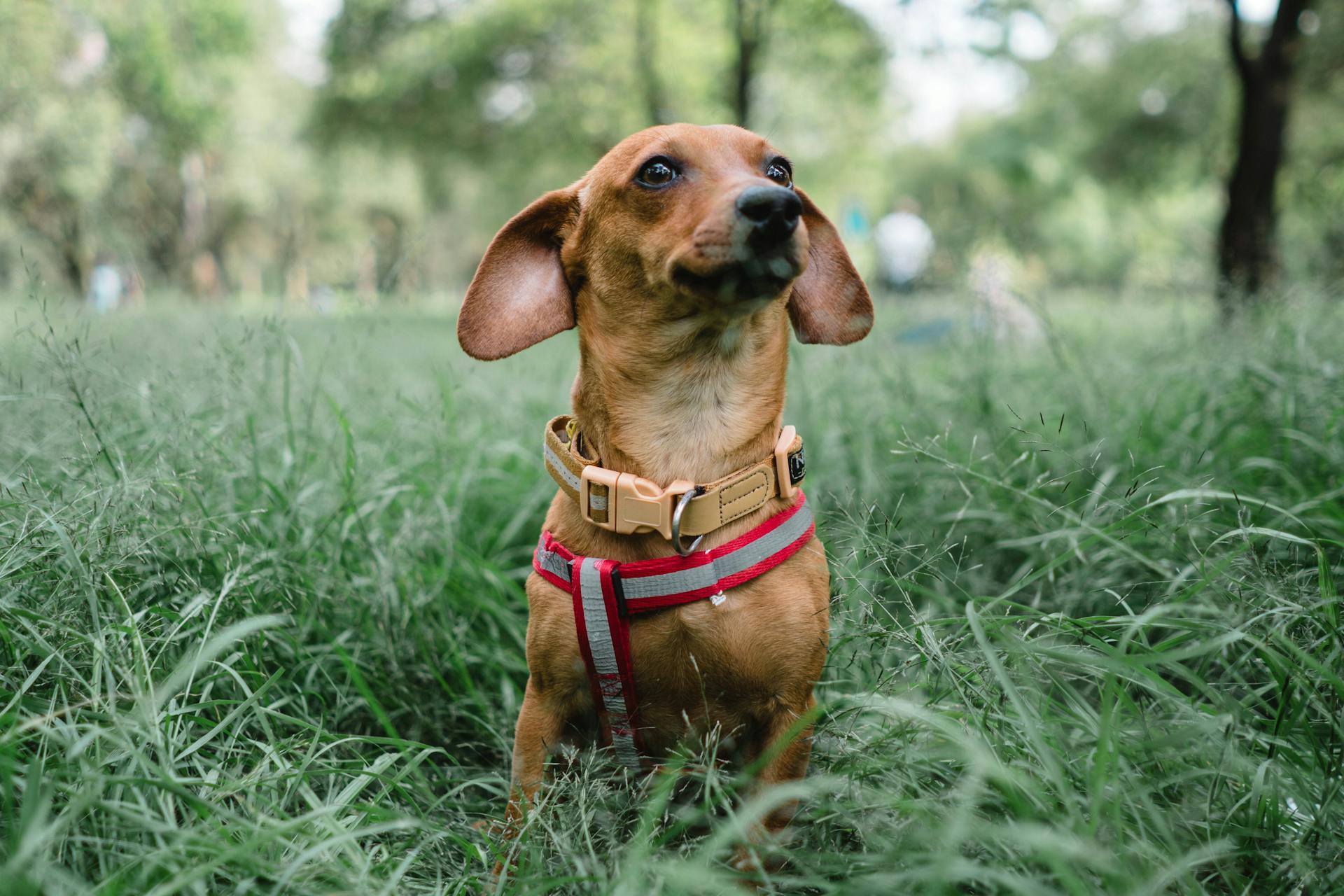
Basenjis are often misunderstood as being aggressive, but is that really the case? In reality, Basenjis are naturally wary of strangers and can be aloof, but this doesn't necessarily mean they're aggressive.
Basenjis are an ancient breed with a strong prey drive, which can sometimes be misinterpreted as aggression. Their independent nature means they may not always warm up to new people or situations quickly.
Basenjis are intelligent and active dogs that require regular exercise and mental stimulation to prevent boredom and destructive behavior.
Basenji Temperament
Basenjis are pack-centric dogs that thrive on being part of a family unit. They can be very friendly and protective of their pack, but may show passive behavior or aggression towards outsiders.
Their individual personalities shine through, but they generally exhibit friendly behavior towards their family. They're also very playful and can get along with other dogs if socialized from an early age.
However, Basenjis can be quite aggressive towards other cats, even if they've never shown any signs of aggression before. It's not uncommon for them to kill a family cat that they've been friendly with.
On the other hand, Basenjis can be cuddly and affectionate, especially in the morning or evening when they're feeling more relaxed. They can even be described as "cuddle bunnies" in the right circumstances.
Readers also liked: Basenji Behavior
Aggression and Training
Basenjis are generally not an aggressive breed, but they can show signs of aggression in certain contexts. They require strong leadership and consistent training from an early age to prevent aggression.
Consistent training and socialization are key to preventing aggression in Basenjis. Early training and socialization are essential with this breed to help prevent aggression. You can usually prevent aggression in Basenjis by providing them with lots of physical exercise and mental stimulation.
Basenjis need to know that you are the leader of the pack. Establishing your authority over your Basenji is crucial to preventing aggression. Here are some ways to establish your authority:
- Don’t let your dog eat before you do – he eats last
- Always have your dog enter a room after you
- Make sure you’re the one deciding which way to go on walks, which games to play, etc.
- Do play lots of games with your dog, but avoid aggressive ones like wrestling or tug of war
- Never yell at or confront your dog – that will only lessen his trust in you
- When he’s sleeping, let him sleep (but don’t let him sleep with you)
- Use positive rewards to get your dog to do what you want and give him lots of praise when he does something positive
- Keep under lock and key anything you don’t want him to touch
Crate training is essential for Basenji puppies so that you can help your dog get used to a routine. Crate training will make it easier if you have to leave your dog for short periods of time.
Expand your knowledge: Basenji Training
Behavior and Instincts
Basenjis have a strong prey drive that's rooted in their African hunting heritage. They'll chase just about anything that moves, from cats to squirrels to rodents.
This energy needs to be released daily, with about 40 minutes of exercise ideal. A tired Basenji is a happy Basenji, as they're much calmer when they get sufficient exercise.
Taking them out for a jog can be a great way to burn off energy, but be careful not to get tripped up by their zig-zagging antics.
Willful
Basenjis are known for being willful, which means they can be a bit stubborn and manipulative. They want to be the boss, so they need you to prove to them that you can make them do things.
Hunting Instincts
Basenjis have a strong prey drive that's been passed down from their African hunting days. They'll chase just about anything that moves, from cats to squirrels to rodents.
Their high energy levels require about 40 minutes of exercise every day. If they don't get this release, they might find other outlets for their energy.
Some Basenjis will make a mess in the house, while others might exhibit aggressive tendencies. This can be misinterpreted as aggression, but it's usually just a sign that they need more exercise.
A tired Basenji is a happy Basenji, as they tend to be much calmer when they've had sufficient exercise. Taking them out for a jog can be a great way to tire them out.
Just be careful not to let them get too energetic - some owners have reported that they can be a trip hazard when jogging, as they love to zig-zag in front of you.
Frequently Asked Questions
What is the downside of Basenji?
High energy and strong prey drive can make Basenjis challenging to manage, requiring extra attention and training to prevent destructive behavior
Is the Basenji a good family dog?
Yes, Basenjis make very nice family dogs due to their loyal and loving nature. They thrive in active families who can provide them with regular exercise and attention.
Are Basenjis destructive?
Basenjis can be prone to destructive behavior if they don't receive enough physical and mental stimulation. Regular exercise and engaging activities can help prevent this issue
Featured Images: pexels.com


